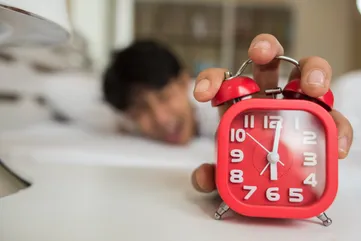Routines
Routines are regular patterns of behavior that create predictable structure in daily life, automating decisions and reducing cognitive load while supporting goal achievement.
Why consistent routines matter
Routines provide the external structure that developing teen brains need while building executive function skills internally.
Research demonstrates that adolescents with consistent routines show better academic performance, improved mental health, and stronger family relationships compared to those without structured routines.
You're not alone
If your teen's days feel chaotic despite good intentions, or you're exhausted from constant reminding about basic tasks, you need better routines. Research shows that families with consistent routines report 50 percent less stress and conflict. Most families have partial routines that break down under pressure. The solution is simpler, more resilient routine design.
What it looks like day to day
Student
Your teen moves through their morning routine automatically, getting ready without your involvement or stress.
Parent
Evenings flow predictably from dinner through homework to bedtime, with everyone knowing what comes next.
Tiny steps to try
- 1
Map current patterns
Before creating new routines, observe existing patterns. Build from what already works.
- 2
Stack don't scatter
Group similar activities together. All hygiene tasks, then all preparation tasks.
- 3
Time buffers
Build 5-10 minute buffers between routine segments. Real life needs flexibility.
- 4
Routine ownership
Let teens design their own routines within parameters. Ownership increases compliance.
- 5
Weekly routine review
Sunday evenings, evaluate what worked and adjust. Routines should evolve with needs.
Why routines transform teen life
Routines eliminate hundreds of daily micro-decisions, preserving mental energy for important tasks. They create stability during turbulent adolescent years.
Key routine benefits:
• Morning routines ensure smooth starts
• Homework routines prevent procrastination
• Bedtime routines improve sleep
• Weekend routines balance rest and productivity
• Transition routines reduce stress
• Study routines enhance learning
Effective routines become invisible scaffolding supporting success.
Ready to help your teen thrive?
Get personalized 1-on-1 coaching to build better habits and boost grades. Join 10,000+ families who trust Coachbit.
Frequently Asked Questions
My teen resists all routines as controlling. What should I do?
Frame routines as freedom tools, not control mechanisms. Routines eliminate nagging and increase independence. Let them design routines within boundaries. Start with one routine they choose, showing benefits before adding more. Emphasize that routines serve them, creating more free time by making necessities efficient.
How detailed should routines be?
Detail depends on your teen's needs. ADHD brains might need step-by-step morning routines. Anxious teens might need simpler, flexible structures. Start basic: "Morning prep, breakfast, gather supplies, leave." Add detail only where breakdowns occur. Too much detail overwhelms; too little leaves gaps.
Related Terms
Habits
Habits are automatic behaviors triggered by specific cues that require minimal conscious thought, forming the foundation of daily routines and long-term success.
Time Management
Time management is the ability to plan, prioritize, and use time effectively to accomplish tasks and meet deadlines without constant crisis.
Related Articles

The Best Morning Routine for Your Child: 3 Tiny Habits With a Big Impact
Discover the best morning routine for your child with 3 tiny habits with a big impact. Learn simple habits to foster lasting change.
Read article
4 Healthy Sleep Habits For Teens
Teenagers need 9 to 9½ hours of sleep and their body clocks are wired to stay up later than adults.The creation of healthy sleep habits for teens ensures sleep quality.
Read article
